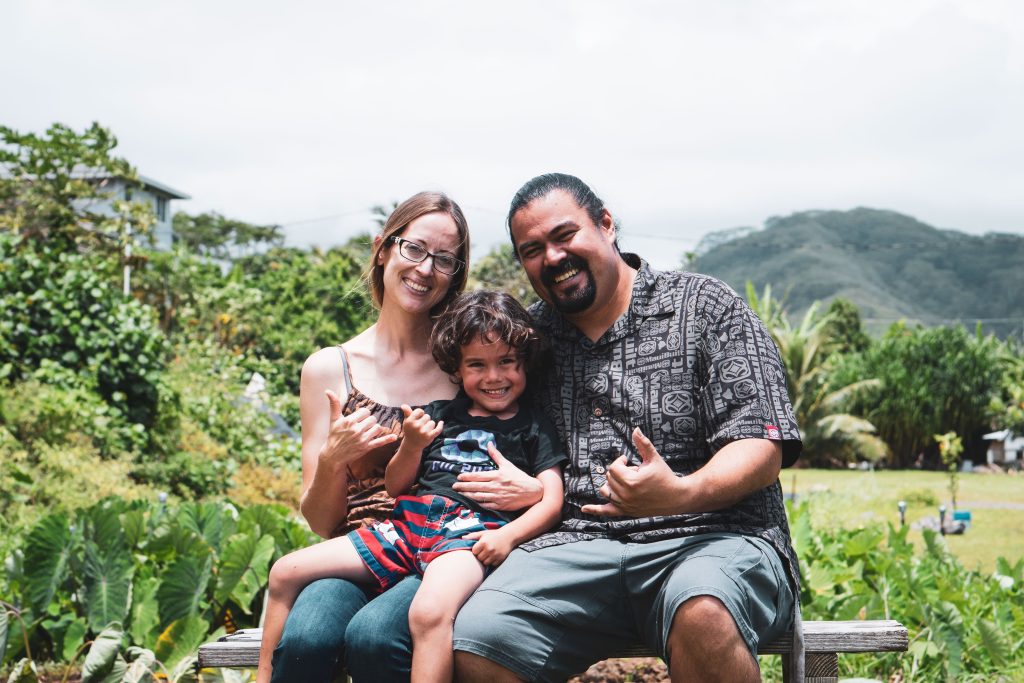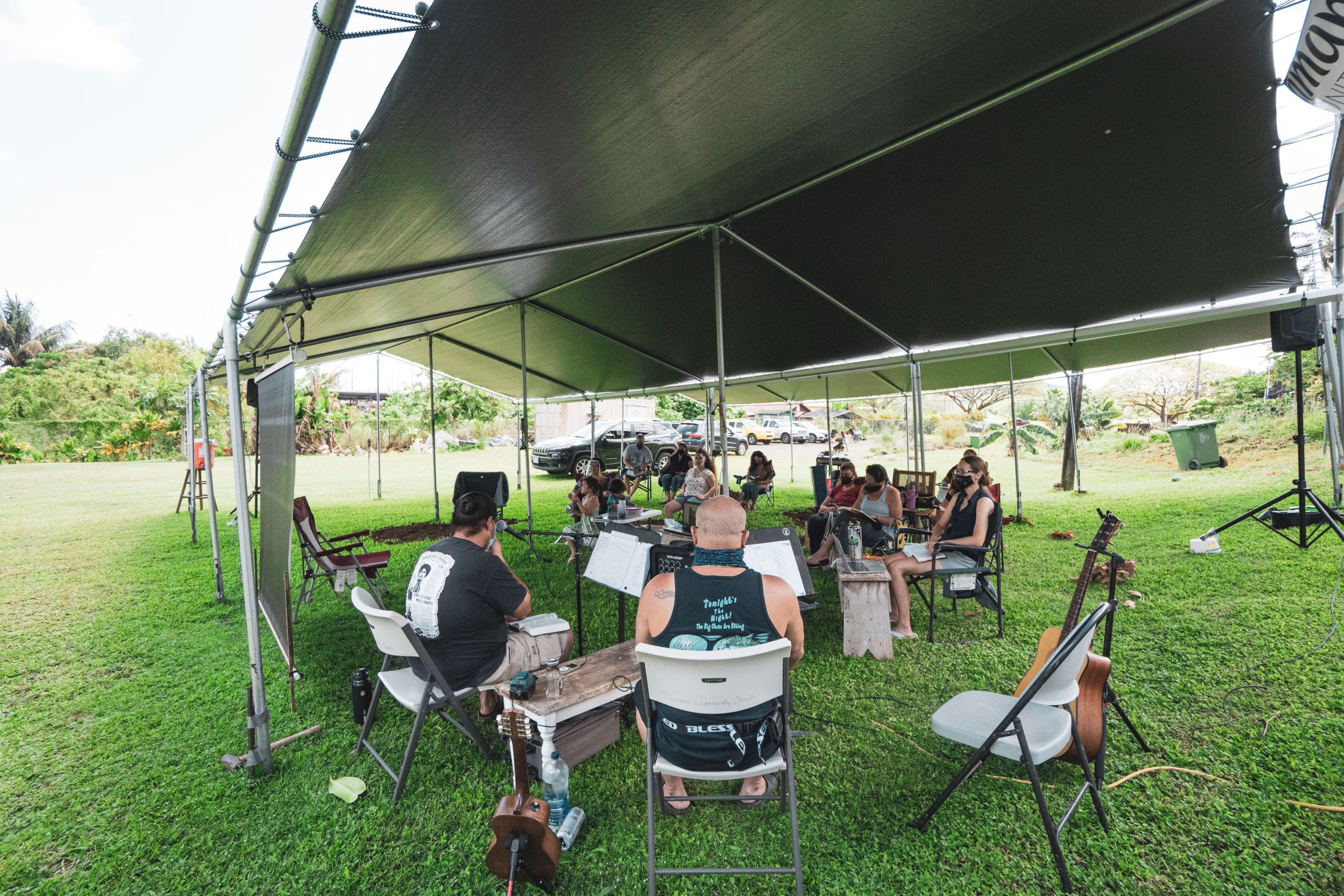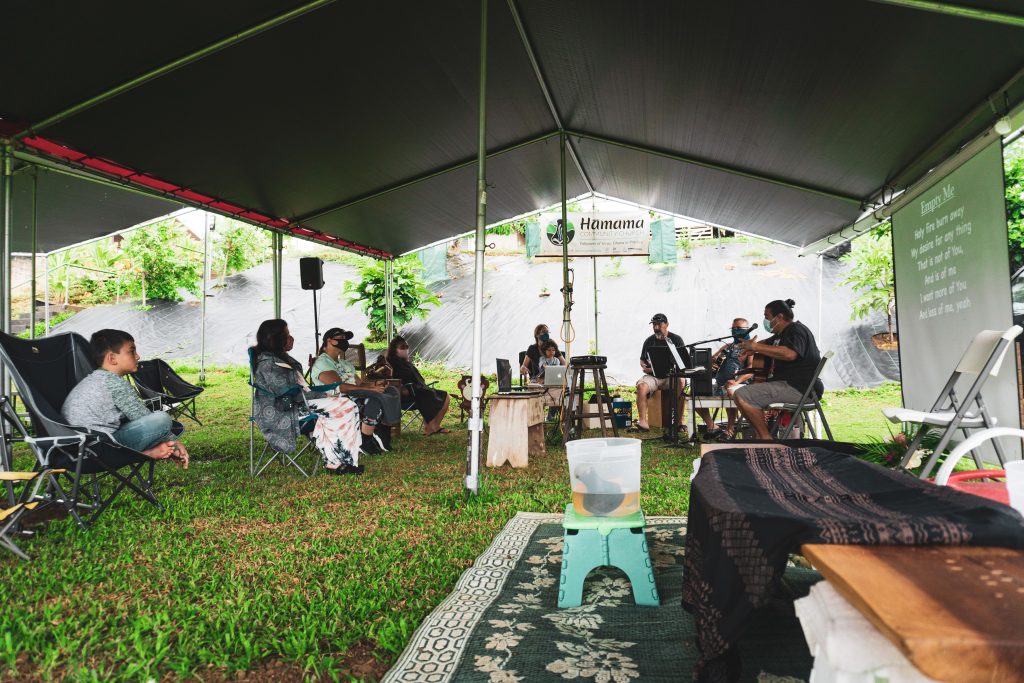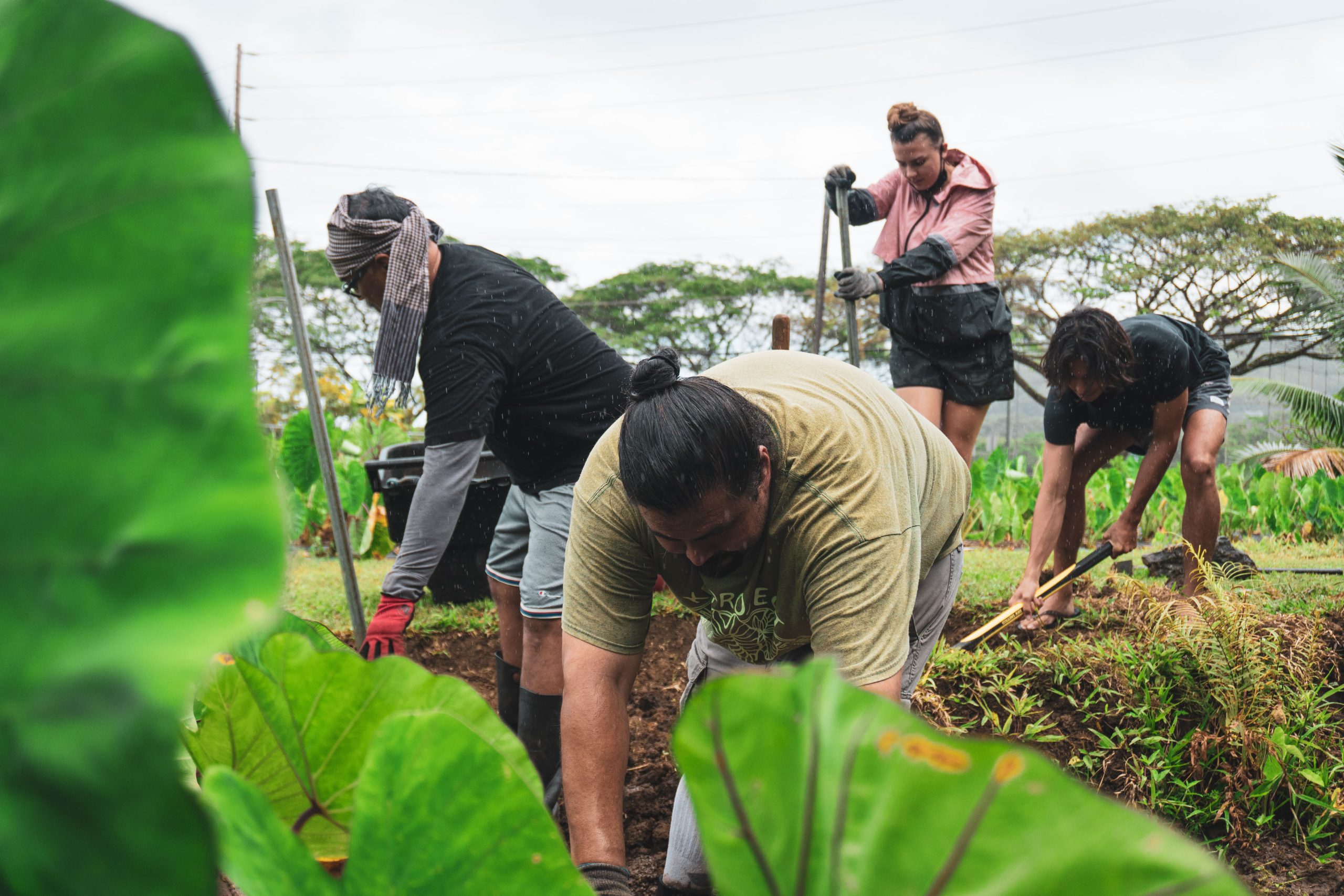We are Hāmama Community Church, “Followers of Jesus, Ohana in Practice.” Our mission is to make disciples of Jesus and mentor believers towards maturity. Like other church plants, we joyfully serve our community and leverage our denominational resources. But what makes this mission unique is our strategy of perpetuating the Hawaiian culture appropriately.

The vision for Hāmama came about before we were ever here. Pastor Jason Hew, a Gateway alum that served in this area, shared a similar vision. We found out later that Lainee Pegelow, a Christian Challenge director in Arizona, prayed for God to do something in this place several years before we arrived. Now, she is a partner and brings college students to serve alongside Hāmama. In California, God was refining my (Ikaika) call and clarifying the vision with the help of Gateway faculty and fellow students. Originally, I (Ikaika) intended to serve the Hawaiian community on Maui while Stacey went to seminary to prepare to return overseas as a full-time missionary. However, God had other plans. Through various means, we answered the call to plant a church in Kahalu’u, O’ahu.
We have a strong conviction to plant an indigenous church. Part of our ministry is incorporating local farming for the community. People ask, “Why did you choose to do farming?” Our answer is simple: we didn’t. Our target community values such work, and we believe it is the vision for the property we steward. As we cleared overgrown bushes and trees, we found a spring that is now used for wetland taro farming. Community members, both believers and non-believers, value aloha ‘aina – the care for their land. They volunteer their time and energy in weekly work days while farmers share their experience, their heavy equipment, and donate plants to bring the farm to life. They are a part of restoring a sense of place, a pu‘uhonua – a sanctuary.



What once used to be commonplace has now become treasured cultural practices. Many kupuna, or family elders, have passed away—taking family traditions with them. It became much easier to cater Hawaiian food, quicker to purchase from a lei stand, and more comfortable to only dream of learning the Native Hawaiian language. Many broken ohana look to the good old days. God has equipped Hamama with core church members who are authentic cultural practitioners. In addition to farming, we teach families to make poi using a board and stone, to make lei using things we grow on the farm, to set an imu to cook food, and to learn Hawaiian as a second language using the Hawaiian Bible translation. We are able to teach it all for free, with no strings attached, because we want our community to know God cares about what they hold dear.
Some have wondered why we started with youth. It was completely a direction from God. The most common understanding of ohana is extended family. It literally translates to that which is of the same oha, or taro stalk. In Hawaiian communities of the past, children or keiki were fortunate to be raised in strong communal systems. Elders, aunts, uncles and cousins, as well as parents – all contributed to the healthy upbringing of the next generation. Today, almost no ohana is immune to integral family members being affected by drugs, prison, alcoholism or the need to move for economic opportunity. The result is brokenness. God knows this and opened the door for us to work with an after-school program to become ohana to many hurting youth and parents. The church of Jesus is a multigenerational ohana filled with many members that are connected by the blood of Christ – the living stalk that will never be broken.


“Followers of Jesus, Ohana in practice” is not just a tagline or a gimmick. It is how Hāmama has been led to fulfill our mission of making disciples. The ohana, the extended family, is the backbone of the Hawaiian community. And right now, it is hurting. God desires to bring life and healing to the ohana. Hāmama Community Church is His story. Though we struggle in the midst of hard work and patient laboring, we know that God’s ways are perfect. He revealed a vision, He appointed the timing, He is bringing the right people and providing the resources to fulfill His mission in Hawai’i.
Read More

Reflections on the Bible Teaching Conference
Hear from attendees what they learned at the Bible Teaching Conference.

Hope in Suffering
Gateway student Matt Bodden is an evangelist who is ready to answer the question of suffering with the gospel.
Listen
Prophets | Haggai
The boys are back. And by boys we mean the Israelites. The people have returned to their land and after rebuilding their homes and the city walls, God pushed them to finally rebuild His temple. While probably not the most read book in the Bible, Haggai still contains

Prophets | Daniel Part 2
Now with the historical portion of Daniel done, Dr. Wegner takes us through the visions of beasts and years. All these figures intending to show us something. What does it all tell us about God?

Watch

Jonathan Edwards and the Asbury Revival
Chris Chun and Chris Woznicki discuss the signs of true revival, signs of the work of the Holy Spirit, and why it is important to critically assess the characteristics of revival in a spirit of charity.

Jonathan Edwards and the Baptists | Douglas Sweeney, Nathan Finn and Chris Chun
Dr. Douglas Sweeney and Dr. Nathan Finn joined Dr. Chris Chun for a panel discussion on Jonathan Edwards, recorded live at the SBC Annual Meeting in Anaheim.



